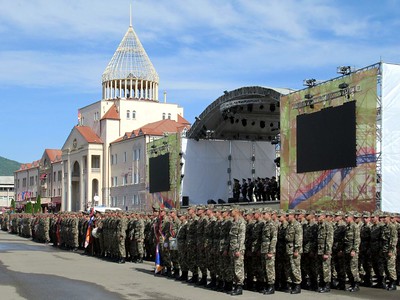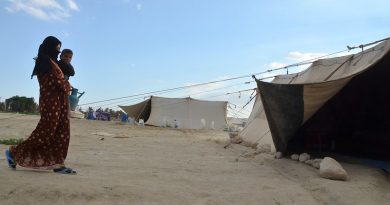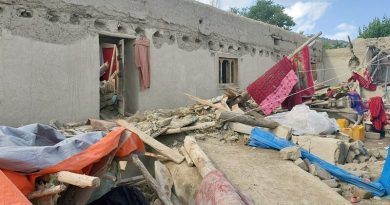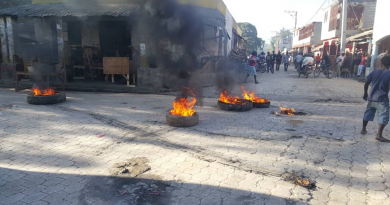FOCUS on Recent Post-Soviet Instability: Nagorno-Karabakh
David Babigian
Staff Writer
Nagorno-Karabakh, also known as Artsakh, is a region with a complex history that spans centuries. Situated in the South Caucasus, it has been the subject of territorial disputes and ethnic conflicts between Armenians and Azerbaijanis for much of its existence. The dispute reached a new head on September 19 when Azerbaijan began an “anti-terrorist” offensive in Nagorno-Karabakh. Azerbaijan declared that it had reclaimed total control over the area in less than two days, according to The Council on Foreign Relations.
The dispute initially turned into a full-scale war in the late 1980s and early 1990s, which caused major casualties and population displacement. Following a truce in 1994, Artsakh gained de facto independence under Armenian rule. However, periodic clashes and negotiations have continued into the twenty-first century, and the conflict has not yet been settled. Recently, the conflict was exacerbated by the war in Ukraine, which had a significant impact on the situation in Nagorno-Karabakh.
Last December, Azerbaijan imposed a blockade on the Nagorno-Karabakh region by targeting the Lachin Corridor, The only road connecting Nagorno-Karabakh to Armenia and the outside world. The blockade has led to a humanitarian crisis, with thousands of people being displaced from their homes and a scarcity of food, medical supplies, and electricity, reports CNN. Days after expectations for a resolution to the issue were raised by an agreement to reopen the Lachin Corridor for humanitarian supplies, Azerbaijan carried out their latest attack.
Chair of the Center of Analysis of International Relations in Baku, Farid Shafiyev, told CNN “Those who don’t want to accept Azerbaijani jurisdiction, they have to leave. Those who would like to stay and get the passports, they are welcome to stay.” However, Armenia’s Prime Minister Nikol Pashinyan and international experts have repeatedly warned of the risk of ethnic cleansing. Many Armenians fear that this could potentially be a repeat of the Armenian Genocide, which was a systematic campaign of mass killings and deportations carried out by the Ottoman Empire between 1915 and 1923, resulting in the deaths of an estimated 1.5 million Armenians, according to The New York Times.
One may begin to wonder why Russia, a historical ally of Armenia, has not immediately jumped in with support. Many believe that this is due to Russia’s current instability following its invasion of Ukraine. “Russia as we know it may not survive the coming decade and risks becoming a failed state as it pursues its costly war in Ukraine,” CNBC reports. Russia has severely damaged itself by encroaching on Ukrainian territory and has subsequently alienated itself from a large number of nations in the global business and political world. Due to the instability caused by the war in Ukraine, a rift is beginning to form between Russia and Armenia.
Many in Armenia’s leadership feel betrayed by Russia’s unwillingness to step in. “Armenia’s security architecture 99.999 percent was linked to Russia,” Armenia’s Prime Minister Nikol Pashinyan told journalists according to CNN.
However, this lack of faith in Russia is not a new development. About a year ago, Pashinyan expressed his dissatisfaction at a CSTO summit over the inability of a security alliance headed by Russia to support Armenia, Reuters reports. Pashinyan called into question the effectiveness of the six-nation Collective Security Treaty Organization (CSTO), which could be seen as a direct critique of Putin. Azerbaijan is not a party to the security agreement that binds the six former Soviet states, including Armenia and Russia, to provide military assistance to one another in the event of conflict. Russia also has a military base in Armenia, but the Russian government has not sent any troops to support Armenia in the current conflict, reports Al Jazeera.
However, Armenia might have a new global ally as its relationship with Russia is declining. Approximately 85 U.S. Soldiers will train alongside approximately 175 Armenian soldiers during Eagle Partner, a peacekeeping training exercise in Armenia, from September 11 to September 20, 2023, reports U.S. Army Europe and Africa. Russia faces the possibility of losing power in regions of the former Soviet Union that it has long considered to be inside its sphere of influence as the war in Ukraine drags on.
Russia’s diminishing influence in post-Soviet states reflects the currently evolving geopolitical landscape. While Moscow’s historical ties and regional interests continue to shape its relationships with these post-Soviet states, the war in Ukraine and the state’s self-interests have led to a potential reconfiguration of Russia’s influence. Russia’s ability to interact with these governments while respecting their ambitions will determine its future dominance in the post-Soviet era.
Image courtesy of Flickr




